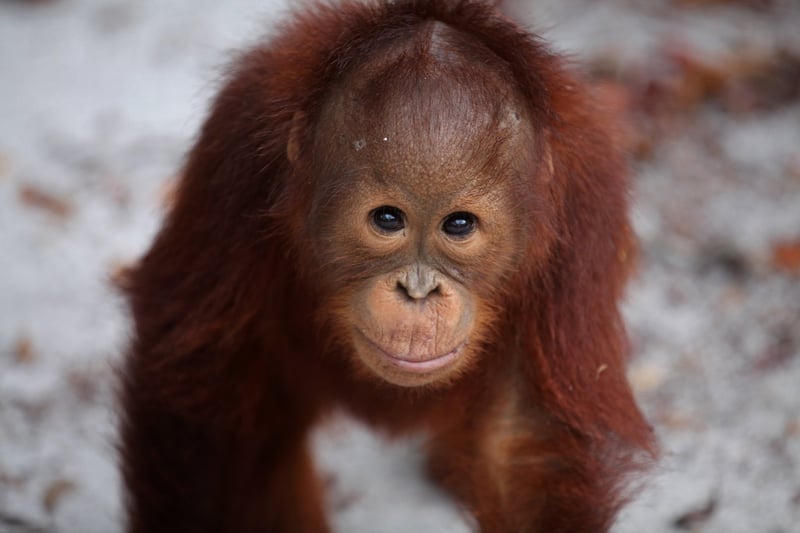
Orangutans are battling for their existence
News
While encroaching agriculture continues to decimate their forest habitat, poaching presents a further deadly threat to this endangered species.
It’s a demand fuelled in part by tourism and the entertainment industry, and it’s vital that tourists are made aware of the cruelty underlying animal shows that can feature orangutans stolen from the wild. Our Partner, the Borneo Orangutan Survival Foundation rescues and rehabilitates many orangutans – but some are too damaged to return to their natural habitat. That’s why we’re running a special appeal to give abused orangutans a future.
Orangutans are among our closest genetic relatives – sharing almost 97% of their DNA with human beings. (In Malay, orang hutan literally means ‘man of the forest’.) Their great intelligence is clear from their behaviour – their distinctive personalities, sense of humour and powerful familial bonds.
The natural life of orangutans plays out in the treetops of dense, tropical forests in Sumatra and Borneo. Creatures of instinct only to a point, orangutans rely heavily on teaching to transfer their essential behaviour from generation to generation – much like humans. A male infant is dependent on his mother for around six years while this vital knowledge is acquired. A female stays close for even longer, picking up the parenting skills she’ll need when her own little ones come along. The mother orangutan teaches her young to forage and feed themselves – sometimes making clever tools from vegetation to collect water and grab foods that are difficult to reach. (They’ve even been known to use leaves like gloves to protect their hands, and as an ingenious umbrella during heavy rain.) The powerful mothering instinct goes beyond family – orangutans have been known to foster orphaned infants who otherwise wouldn’t survive.
The intense relationship between a mother and her young is typical of the orangutan’s complex emotional range. But baby orangutans are of high value to poachers - small, weak and still susceptible to ‘training’ by the illegal entertainers who fuel their trade. Fiercely protective, a mother orangutan under attack will usually defend her young to the death. The orphaned infants are often injured as they’re torn away – they cling on so tightly that they may even lose fingers or a hand to a poacher’s machete.
Without their mothers, infants captured like this won’t be taught natural orangutan habits. If they’re lucky enough to be rescued from the abusive entertainment industry, they must re-learn this behaviour if they are to survive in the wild. For some the conditioning is too deeply ingrained – these damaged creatures can never go home.
The Borneo Orangutan Survival Foundation urgently needs to build a sanctuary for orangutans too frail or damaged to return to the wild. The area known as Badak Kecil in Indonesia could be a perfect island sanctuary where vulnerable orangutans can enjoy freedom in safety – but there’s still so much work to do to make their forever home. You can help make it happen by supporting our appeal and sharing their story with as many people as possible.
Let’s move the world to protect vulnerable orangutans.
The Borneo Orangutan Survival Foundation urgently needs to build a sanctuary for orangutans too frail or damaged to return to the wild.